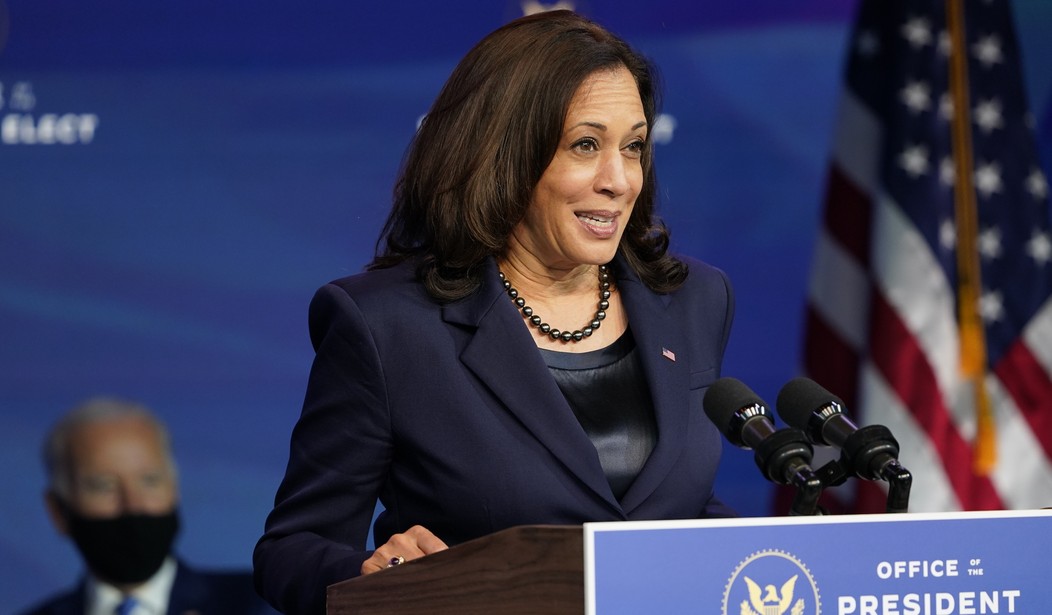Kamala Harris is seen by many as an inspirational figure. In the latest People magazine, actress Mayim Bialik confessed that the last time she cried was on election night. "Kamala Harris is such a trailblazer; this election represents so many firsts."
When liberals swoon over their "trailblazers," they often love retelling their life stories ... just as these politicians tell them. In a cover story with women's magazine Elle, Harris recounted how "she remembers being wheeled through an Oakland, California, civil rights march in a stroller with no straps with her parents and her uncle." At some point, she fell from the stroller and none of the adults noticed. When they returned, little Kamala was upset. "My mother tells the story about how I'm fussing," Harris says, "and she's like, 'Baby, what do you want? What do you need?' And I just looked at her and I said, 'Fweedom.'"
It just emerged on Twitter that this curiously echoes a 1965 interview Martin Luther King Jr. gave to Alex Haley for Playboy magazine. At the very end, King recounted: "I never will forget a moment in Birmingham when a white policeman accosted a little Negro girl, seven or eight years old, who was walking in a demonstration with her mother. 'What do you want?' the policeman asked her gruffly, and the little girl looked him straight in the eye and answered, 'Fee-dom.'"
These stories echo each other right down to the cutesy mispronunciation. So where are the "fact-checkers" of the press? Sleeping.
Recommended
The day after Christmas, Harris put out a video touting her family's celebration of Kwanzaa, the black-separatist holiday. "You know, my sister and I, we grew up celebrating Kwanzaa," Harris claimed. "Every year, our family would -- and our extended family -- we would gather around, across multiple generations, and we'd tell stories ... and, of course, afterwards have a beautiful meal."
Again, conservative Twitter was skeptical. Harris was born to a Jamaican father and an Indian mother in 1964, and Kwanzaa was created by radical lefty (and convicted felon) Maulana Karenga in 1966. Harris spent her teenage years in Canada. Kwanzaa's celebrated by a tiny fraction of black Americans, to the point where even NPR ran a story asking, "Is Kwanzaa Still A Thing?"
A little sleuthing on the Nexis news database finds next to nothing matching the terms "Kamala Harris" and "Kwanzaa," but it's important to state that her parents were active leftists in California in the '60s. As The New York Times warmly recounted on Sept. 13, 2020, "Members of the study group that drew them together in 1962, known as the Afro American Association, would help build the discipline of Black studies, introduce the holiday of Kwanzaa and establish the Black Panther Party."
Does anyone in the "fact-checking mainstream media" ask Harris about this Kwanzaa story? Can we see family photographs with Kamala and the candles? Or do they only "fact-check" non-trailblazers?
After all, Barack Obama was accused of telling a pile of phony stories in his memoir "Dreams from My Father," which were exploded by liberal reporter David Maraniss. Maraniss later recalled that when Obama objected saying, "David, you called my book fiction," he replied, "No, Mr. President, I complimented it. I called it literature."
All this reminds me of 1989, when longtime Martin Luther King ally Ralph Abernethy put out a memoir in which he discussed King's alleged extramarital affairs. On NBC, "Today" show then-host Bryant Gumbel browbeat him about this throughout the interview, paraphrasing a movie line: "When the truth collides with a legend, print the legend."
That's why "fact-checking" has a partisan rap.

























Join the conversation as a VIP Member